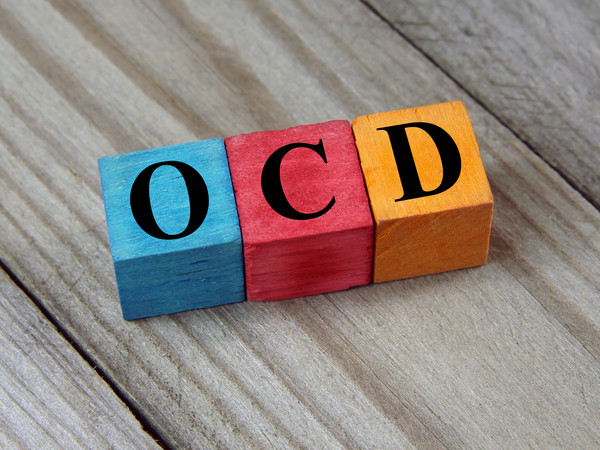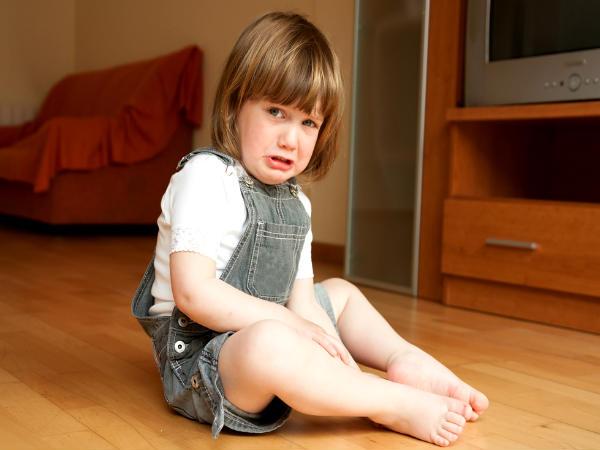Just In
- 1 hr ago

- 2 hrs ago

- 4 hrs ago

- 12 hrs ago

Don't Miss
- Finance
 Senior Citizens Benefits: Top Banks Offer High FD Interest Rates
Senior Citizens Benefits: Top Banks Offer High FD Interest Rates - News
 H5N1 Bird Flu Detected In Raw Cow Milk At High Levels, WHO Issues Warning
H5N1 Bird Flu Detected In Raw Cow Milk At High Levels, WHO Issues Warning - Sports
 IPL 2024: Robin Uthappa On What Could Be The Only Factor Stopping MS Dhoni From Playing Beyond This Season
IPL 2024: Robin Uthappa On What Could Be The Only Factor Stopping MS Dhoni From Playing Beyond This Season - Movies
 Metro In Dino: When Ananya Panday Warns Sara Ali Khan Not To Touch Aditya Roy Kapur As She Pairs Up With Him
Metro In Dino: When Ananya Panday Warns Sara Ali Khan Not To Touch Aditya Roy Kapur As She Pairs Up With Him - Technology
 Garena Free Fire Max Redeem Codes for April 20, 2024: Get Access to the Latest In-game Loot
Garena Free Fire Max Redeem Codes for April 20, 2024: Get Access to the Latest In-game Loot - Automobiles
 Ford Mustang 60th Anniversary Package – Limited To Just 1,965 Units
Ford Mustang 60th Anniversary Package – Limited To Just 1,965 Units - Education
 Exam Pressure Does Not Exist; Studying Punctually is Crucial; Says Aditi, the PSEB 2024 Topper
Exam Pressure Does Not Exist; Studying Punctually is Crucial; Says Aditi, the PSEB 2024 Topper - Travel
 Journey From Delhi To Ooty: Top Transport Options And Attractions
Journey From Delhi To Ooty: Top Transport Options And Attractions
Obsessive Compulsive Disorder: Encouraging Your Child To Stay Positive
"He knows not his own strength who hath not met adversity." - William Samuel Johnson
Interesting Fact - The word "Normal" is derived from a latin word "norma." This Latin word refers to the equal measurements of a carpenter's square.
We all have heard about people who are exceptionally particular about washing their hands and feet repeatedly.

We have also heard of people who spend hours checking the locks of their doors before leaving their home.
Some of us have even joked about being borderline OCD because we love something and we can't stop doing those things.
The fact that most people don't know about is, people who complete such seemingly harmless rituals or behaviours on a daily basis are affected with a serious problem.
Obsessive Compulsive Disorder, most commonly known as OCD, is a psychiatric condition that can be triggered in children between the ages of 10 and 12 years. In the case of early onset, OCD can be triggered in children who are 7-8 years old.
The onset of OCD in children is caused due to a combination of 3 elements that are genetic, biological and environmental risk factors.
So far, no single "OCD" gene has been found that is solely responsible for this condition.
Although treatable but not completely curable, this disorder changes the lives of the children it affects. This disorder also significantly disrupts the life of families and friends.
Continue reading to know how to minimise the adverse effects of OCD in your child and why positivity is a must in this situation.
The Difference Between Obsessions and Compulsions
In the clinical sense, OCD is basically split into 2 parts, obsessions and compulsions. If the obsession is a serious fear of germs, the compulsion is to wash oneself repeatedly. At times, the person affected with this disorder might also get obsessive thoughts that he/she might rid with compulsive actions.
OCD is often accompanied with Motor Tics that cause the child to experience sudden and uncontrollable movements. Repeated shoulder shrugging, head jerking, out-of-the-ordinary eye movements are a few examples of tics. Symptoms can get worse or they can improve with time.

Finding The Strength To Be Positive In A Grim Situation
The symptoms of OCD do not go away, they do not vanish with time. This life-time long illness is here to stay.
However, it is very important for parents to adjust to the new situation quickly. It is important for parents not to show their grief in front of their child.
Crying in front of your child or blaming him/her will only add to the stress he/she experiences. Added stress is proven to worsen the symptoms of OCD. Added stress is also known to cause children to develop a low self-esteem.
All Hope Is Certainly Not Lost!
Children are intuitive. They can sense when something is wrong even if their parents don't mention it. Seeing you positive will help him/her become positive as well. In fact, your child needs your support all the more now.
Being diagnosed with OCD, Tics and other disorders is tough on children. If your child is old enough, he/she will understand that something is different in him/her. If your child is under the age of 8 years, then you might have to break the news to him/her. Ensure that you are extremely careful while doing this.
Health conditions that were not recognised a decade ago are now being successfully treated. Being diagnosed with these problems is not the end of the world. There are many ways to adjust your child's expectations and help him/her cope with it.

There are new and improved psychotropic medicines coming in the market every day to treat both OCD and Motor Tics. Ayurvedic and Homeopathy medicines can be used in addition to reduce the outward appearance of symptoms.The primary reason it is important to break the news to your child is because he/she will be put on psychotropic medications. Your child will have to take medicines to treat the symptoms of OCD. These medicines will be evaluated and updated as time passes. Skipping doses of these medicines is not recommended by doctors.

The
adverse
effects
of
OCD
include
grief,
depression
and
even
self-loathing.
Children
who
are
diagnosed
with
OCD
tend
to
ask
questions
such
as
"is
it
my
fault",
"how
can
I
make
it
better"
and
"why
am
I
weird".
Other
statements
might
include,
"I
am
sorry,
I
dint
mean
to"
and
"what
did
I
do
wrong
to
deserve
this".
It
is
very
important
for
parents
to
answer
these
questions
positively
and
with
great
care.
Consulting
a
therapist
before
telling
your
child
that
he/she
has
OCD
is
always
a
good
idea.
Remember, if your child is old enough, he/she will realise that something is not right. Getting medical and professional help at the earliest is one of the effective ways to minimise the adverse effects of this condition.
-
 healthExclusive: On World Autism Day 2024, Let Us Empower Parents With Positive Strategies For Autism Care
healthExclusive: On World Autism Day 2024, Let Us Empower Parents With Positive Strategies For Autism Care -
 insyncNational Girl Child Day 2024: Wishes, Greetings, Messages, Images, FB And WhatsApp Status
insyncNational Girl Child Day 2024: Wishes, Greetings, Messages, Images, FB And WhatsApp Status -
 pregnancy parentingChristmas 2023: How To Raise Kids Who Are On Santa's Nice And Naughty List This Holiday Season
pregnancy parentingChristmas 2023: How To Raise Kids Who Are On Santa's Nice And Naughty List This Holiday Season -
 pregnancy parentingWhat Are The 4 Must Have Vitamins For Kids With Diabetes?
pregnancy parentingWhat Are The 4 Must Have Vitamins For Kids With Diabetes? -
 pregnancy parentingExpert On Importance Of Screening Newborns For Lung Cancer
pregnancy parentingExpert On Importance Of Screening Newborns For Lung Cancer -
 healthPneumonia Outbreak: Pediatrician Shares Insights On How To Protect Children, Safety Practices and Guidelines
healthPneumonia Outbreak: Pediatrician Shares Insights On How To Protect Children, Safety Practices and Guidelines -
 pregnancy parentingStates On High Alert As China Grapples With Respiratory Infections: Symptoms, Do’s And Don’ts
pregnancy parentingStates On High Alert As China Grapples With Respiratory Infections: Symptoms, Do’s And Don’ts -
 pregnancy parentingIs Your Teen Kid Not Eating Vegetables? 5 Ways To Get Teenagers To Start Enjoyin' Veggies
pregnancy parentingIs Your Teen Kid Not Eating Vegetables? 5 Ways To Get Teenagers To Start Enjoyin' Veggies -
 pregnancy parentingMysterious Pneumonia Outbreak In China: What Are The Long-Term Effects Of Pneumonia In Children?
pregnancy parentingMysterious Pneumonia Outbreak In China: What Are The Long-Term Effects Of Pneumonia In Children? -
 pregnancy parentingAre You The Second Favourite Parent To Your Kid? Signs To Watch Out For
pregnancy parentingAre You The Second Favourite Parent To Your Kid? Signs To Watch Out For -
 healthNot Just Heart And Lungs, Exposing Your Child To Air pollution Can Cause This Fatal Disease Too!
healthNot Just Heart And Lungs, Exposing Your Child To Air pollution Can Cause This Fatal Disease Too! -
 pregnancy parentingChildren's Day 2023: Best Gifts Ideas For Children, Kids That Will Help Them Grow Beautifully
pregnancy parentingChildren's Day 2023: Best Gifts Ideas For Children, Kids That Will Help Them Grow Beautifully


 Click it and Unblock the Notifications
Click it and Unblock the Notifications



